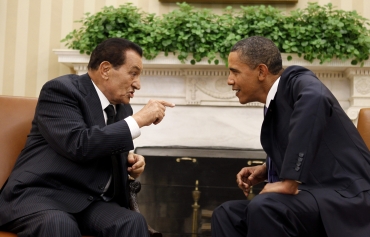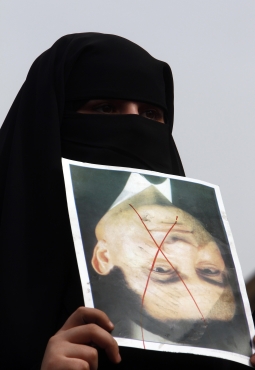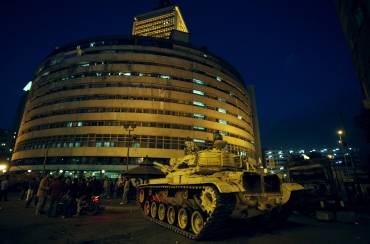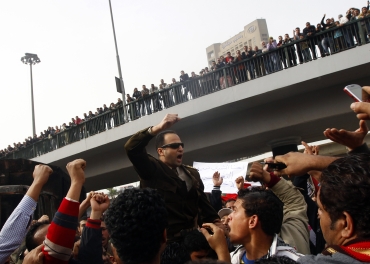 | « Back to article | Print this article |
'We are sick of Americans'
The administration of President Barack Obama has as badly misjudged the gathering storm in Egypt before the riots broke out as the administration of then President Jimmy Carter had misjudged the gathering storm in Teheran in 1978 before the fall of the Shah of Iran, believes B Raman
The people's revolt in Egypt, which has cost over a hundred lives since January 25, is showing signs of taking an anti-United States turn.
'Neither Mubarak nor Suleiman; we're sick of Americans', shouted protesters in the Tahir (Liberation) Square of Cairo on January 29. The reference was to Omar Suleiman, the head of the military intelligence, whom President Hosni Mubarak appointed as the vice-president in a desperate move to ensure the continued loyalty of the army to him.
The army has till now remained loyal to Mubarak. All the fatalities were reported to have been caused in clashes between the protesters and the riot police, which come under the interior ministry. Mubarak seems to be hoping to save his tottering regime by projecting the riot police as the fall guy.
The US is in a quandary
This is unlikely to work and could prove dangerous by creating large-scale desertions from the riot police. The riot police and the army roughly have equal strength -- nearly 30 lakh personnel. If there are large-scale desertions from the riot police, the army may find it very difficult to control the resulting situation.
The US is in a quandary. The administration of President Barack Obama has as badly misjudged the gathering storm in Egypt before the riots broke out as the administration of then President Jimmy Carter had misjudged the gathering storm in Teheran in 1978 before the fall of the Shah of Iran.
Wishful thinking by governmental and non-governmental analysts in the US that the Shah would somehow be able to control the situation contributed to a strategic disaster in Iran, with the Shia revolutionaries under Ayatollah Khomeni capturing power, the consequences of which are being felt even today on the strategic scenario in the region.
'Who After Mubarak'
Similar wishful-thinking by governmental and non-governmental analysts in Washington DC and a similar miscalculation are inexorably leading to a situation where the people's anger, which was initially against the Mubarak regime, is turning against the US government for continuing to support it.
The strategic consequences of the emerging anger against the US will be unpredictable and the Obama administration will find its attention increasingly distracted from the Af-Pak region.
'All the way with Mubarak' is no longer a workable option. 'Jettison Mubarak' could be an option, but the dilemma for the US is 'Who After Mubarak?'
Nobody is a leader and yet everybody is a leader
It cannot be someone associated with the Mubarak regime. It has to be a new face from amongst the growing crowds demonstrating in the streets. Even though the Muslim Brotherhood is playing a behind-the-scene role in keeping the protests alive, one has not heard of any slogans calling for power to the MB.
In a situation where nobody is a leader and yet everybody is a leader, it is difficult to assess who is going to ultimately emerge as the leader to take over power.
The US placed so much faith in the stability and durability of the Shah of Iran that it failed to diversify its political contacts in Iran. When the Shah ultimately fell, the US suddenly found itself without any influence in Teheran and without any insights about Ayatollah Khomeni and his aides.
Obama has to keep his fingers crossed
Similarly, it had such pathetic faith in the stability and durability of Mubarak that it has failed to diversify its contacts and influence in Cairo. The result: It has no contacts and friends in the people who are at the forefront of the revolt.
The policy and operational disasters of the Carter administration in Iran contributed to the failure of Carter to get re-elected for a second term. Will history repeat itself? Will policy and operational disasters in Egypt contribute to a similar failure of Obama to get re-elected next year? Obama has to keep his fingers crossed.




